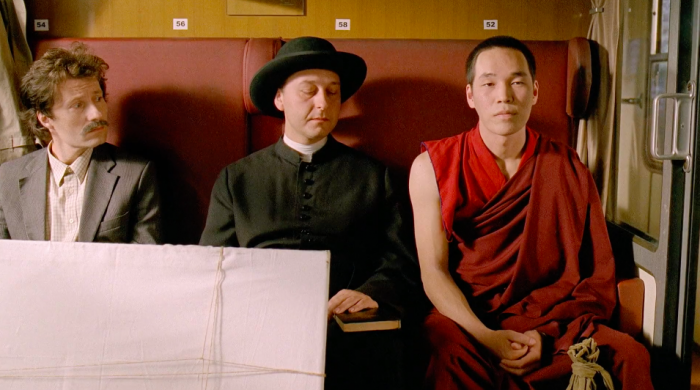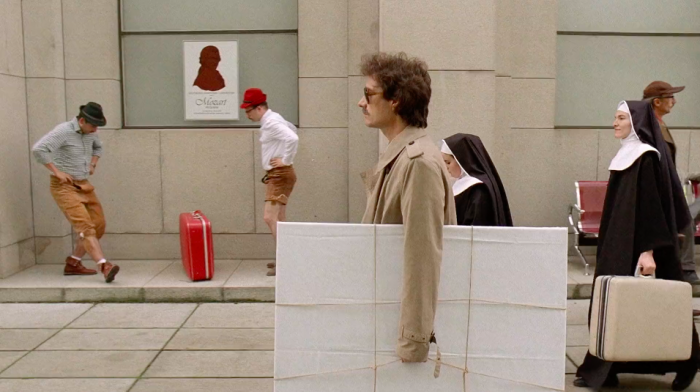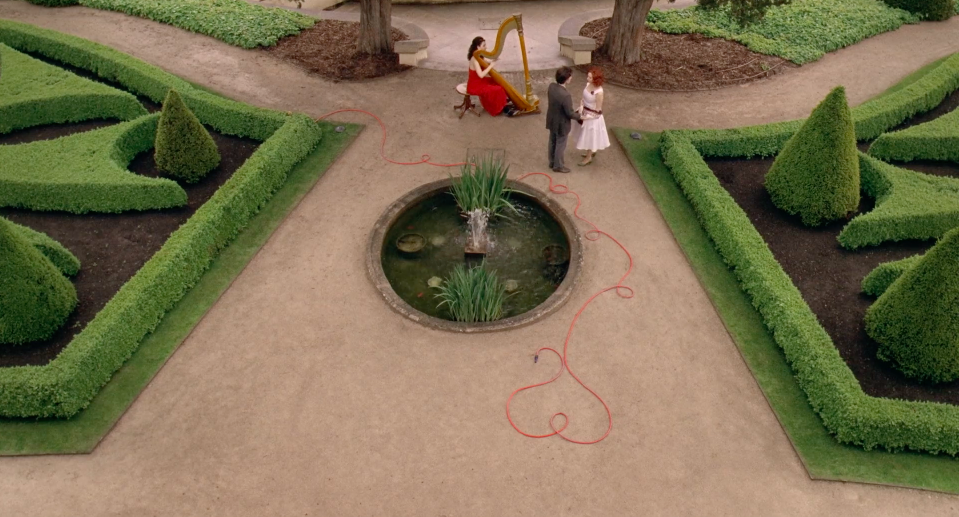By Stephanie Hotz
Directed by Tomasz Mielnik
Karlovy Vary International Film Festival review
“We live in an age of pictorial depiction. Folk cannot express themselves anymore, the consequence of our pace of life.†– Journey to Rome
Polish filmmaker Tomasz Mielnik’s first full-length feature, Journey to Rome (Cesta do ŘÃma), is exactly what its title claims to be, a journey not only for its multitude of characters but for its viewers as well. While somewhat underdeveloped in its plot, Mielnik allows room for the camera and characters to create a surreal and flowing account of their otherwise complex back-stories. The above quote is ironic since it is ultimately the cinematic mise en scène, sound, pacing, and editing that make this film captivating and unique. In fact, irony and satire are ridden throughout the film inciting viewers to laugh at and reflect upon various fictional recollections, many of which revolve around religious experiences (or lack thereof) and philosophical musings.
Marketed as a “spiritual comedy,†Journey to Rome cleverly opens with the beginning lines of Dante’s epic poem The Divine Comedy, undeniably one of the most detailed and famous fictional journeys through the Christian afterlife. Like Dante, Vasek (Vaclav Hrzina) is lost in the woods that is his life (he even literally disappears within the woods later in the film). The main protagonist is a guard at an art gallery who appears to spend his days blanking staring at a singular painting and the museum guests who stroll passed it.

Again paralleling Dante’s text, Vasek begins his long journey after meeting a beautiful woman. The red-haired woman convinces our gullible protagonist to visit her father, a doctor who deceives and persuades Vasek into stealing a painting, which he must then sell to a man (cryptically named “Italian Collectorâ€) in order to pay a healer for his bizarre disease. The rest of the film follows the guard on his journey as he politely listens to his fellow train passengers, with a detective and two cronies of an underground antique dealer on his tail. The string of recollections and flashbacks, while silly, are also somber and sincere, as if the stories were created within a child’s imagination but for an adult audience.
All of the passengers are traveling their own journey, many of which question traditional forms of spirituality. Furthermore, there are comical sequences that include a “Confessional Taxiâ€, a powder that literally turns water into wine, and a long take of neighboring train compartments with depictions of Hell, Purgatory, and Paradise outside their windows. Through his subtle comedy Mielnik does a fantastic job of prompting viewers to reflect on the commerciality of religious institutions and whether one may find personal enlightenment in alternative (and even secular) ways.

Although the conclusion of Vasek’s journey remains unknown, his experiences and daydreams along the way bewitch and delight. One passenger in particular stays with Vasek throughout his entire train ride and he eventually takes over the guard’s mission after his disappearance in the woods. To avoid ruining any surprises, it is suffice to say that this passenger is the most interesting character of the film, and by the close of the narrative one could even consider him the true protagonist.
In addition to being a hybrid between a road movie and a heist film, an assortment of artistic influences also encourages multiple viewings and careful attention. In his Director’s Statement Mielnik explains that his influences spanned from Hitchcock and Melville, to Dante and baroque painting. Due to the film’s paralleling of The Divine Comedy and its explicit reference to the Italian author, as well as the few picaresque views of an Italian vineyard, it is certain that any enthusiast of Italian culture will enjoy this film. Furthermore, while fans of Wes Anderson will relish in the soundtrack and the sensorial feeling of Journey to Rome, many other viewers will appreciate the light-hearted satire that turns a serious topic into an enjoyable dialogue.
Discuss Journey to Rome on FilmDoo.com
Recommended Viewing on FilmDoo:
(UK & Ireland only)








